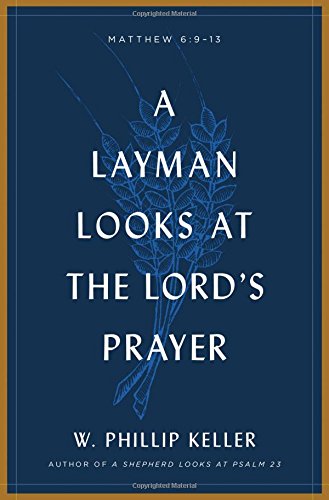Prayer is a very important aspect of the Christian life because it is how we communicate with God. Simply put, prayer is talking to God. But while many Christians assume that the attitude of prayer comes naturally to every born again believer, we learn from the Scriptures that Jesus’ disciples did not automatically learn how to pray.
They had been with the Lord for three years but never got to understand the importance of communicating with God. Every time Jesus asked them to wait at a certain place while He pours out His heart to the Father, they fell asleep waiting.
So, one time when Jesus had finished praying, one of His disciples came to Him and said, “Lord, teach us to pray, as John also taught his disciples” (Luke 11:1).
To which Jesus replied, “When you pray, say: ‘Our Father in heaven, hallowed be Your name. Your kingdom come. Your will be done on earth as it is in heaven. Give us day by day our daily bread. And forgive us our sins, for we also forgive everyone who is indebted to us. And do not lead us into temptation, but deliver us from the evil one’” (Luke 11:2-4).
These statements of Jesus were later became known as “The Lord’s Prayer.” We also read this in Matthew 6:9-13.
A Model Prayer for Christians
The Lord’s Prayer is a model prayer for those who believe in Jesus. However, we need to emphasize that we must not mechanically repeat it. Note that it is a model about how we should pray, not what we should pray.
The disciples of Jesus asked Him to show them how to pray. Therefore, Jesus did not give this prayer so that we would repeat these exact words every time we talk to God. He warned about mindless repetition in prayer (Matthew 6:7-8).
Christians are not to merely recite and mechanically repeat the Lord’s Prayer.

Jesus’ Teaching On Prayer
From this model prayer that Jesus gave, there are several things we learn about what God expects from us when we talk to Him.
We Recognize God for Who He is
“Our Father in heaven …”
When we approach God in prayer, we must recognize to whom we are talking – our Father who is in heaven. There is none like Him. The Lord Himself has said, “I am God, and there is no other; I am God, and there is none like Me” (Isaiah 46:9).
It is human nature to focus on “self” but when we realize who God is – the Lord Almighty, the One who created the heavens and the earth – it is fitting to begin our prayers with the recognition that we are face to face with the Lord of the universe.
Consequently, we should have a continual attitude of reverence and respect when we talk to the Lord in prayer.
We Magnify His Holy Name
“Hallowed be Your name.”
After we recognize God for who He is, the next thing that is mentioned is the magnifying of the name of the Lord. We are to worship or hallow His name. In this context, God’s name refers to His character.
God deserves our praise and adoration and He alone is worthy to receive all glory and honor. Revelation 4:11 says, “You are worthy, O Lord, to receive glory and honor and power; for You created all things, and by Your will they exist and were created.”
We Ask for His Kingdom to Come
“Your kingdom come …”
We are to pray that the promised Kingdom of the Lord will come to the earth. In fact, this is the last prayer that we find recorded in Scripture. In the final chapter of the Book of Revelation, we read:
He who testifies to these things says, “Surely I am coming quickly.” Amen. Even so, come, Lord Jesus” (Revelation 22:20)!
We want to see our Lord ruling on the earth – a rule which will be characterized by righteousness (Hebrews 1:8). This will happen after the Tribulation period when Jesus will rule and reign as King from Jerusalem for a thousand years.
We Pray for God’s Will to be Done
“Your will be done …”
To pray for God to carry out His plans is not to say that He won’t accomplish them without us asking Him to. This part of the prayer is to get our minds in line with God’s purpose. We know that God will carry out His plans and there is not the slightest chance that it cannot be done.
But this part of the prayer is for our benefit; it is to get our minds in line with God’s purpose. This means that His desires are to be our desires and we are to line up our hopes and dreams with the will of the Lord.
When we pray for His will to be done, then we are saying that we will live per His will. Paul said we are to offer ourselves as living sacrifices to the Lord (Romans 12:1).

We Ask God to Supply Our Daily Needs
“Give us this day our daily bread.”
We then ask God to meet our day-to-day needs. But why does it have to be on a “daily basis?” Can we not ask God to supply our needs for a week, a month, or a year? I believe it’s because God is teaching us to trust in His provision and to be completely dependent on Him.
This reminds me of the Israelites while they were wandering in the wilderness. God specifically instructed them to go out and gather only enough manna and quails for the day, except on the day before the Sabbath when they must gather twice as much (Exodus 16:1-30).
God has promised to supply our needs. When the apostle Paul wrote to the church at Philippi, he said, “My God shall supply all your need according to His riches in glory by Christ Jesus” (Philippians 4:19).
God knows the things we need even before we ask Him. Furthermore, He has promised to fulfill whatever needs we may have. We do not have to be concerned about what we shall eat or wear tomorrow (Matthew 6:32-34). He knows what things are necessary for us and He promised to meet those needs.
We Ask God to Forgive Our Sins
“Forgive us our sins …”
Confession of sins is an important part of prayer. We need to confess our sins because Proverbs 28:13 says, “He who covers his sins will not prosper, but whoever confesses and forsakes them will have mercy.”
However, this confession is not so that we will get saved. Rather, this prayer is for those who have already placed their faith in Jesus as their Lord and Savior.
We confess our sins as we do not want anything to come between us and God. And when we confess, we should be specific about the sins that we have committed. We should ask the Lord to search our hearts and reveal any sin to us (Psalm 139:23-24); we must also confess those sins that we are unaware of (Psalm 19:12).
We Forgive Others Who Have Sinned Against Us
“We also forgive those who sin against us.”
Not only do we confess our sins, but we are also to forgive those who have wronged and offended us. We cannot come to the Lord with a pure heart if we have not forgiven the people who have hurt us in any way.
In Jesus’ Sermon on the Mount, He said, “When you bring your gift to the altar and there you remember that your brother has something against you, leave your gift there before the altar, and go your way. First, be reconciled to your brother, and then come and offer your gift” (Matthew 5:23-24).
Unforgiveness will result in bitterness and resentment. The Bible says that we are not to be bitter toward others (Ephesians 4:31). Unforgiveness is a sin which in effect blocks the answer to our prayers and petitions (Psalm 66:18). Therefore, forgiving others is an important part of prayer.
We Ask God to Lead Us Away from Temptations
“And do not lead us into temptation …”
Christians are not exempted from facing temptations. Jesus Himself was tempted but emerged victoriously. We do not pray that our life will be free from temptation but for God to enable us to overcome all temptations.
It is certainly impossible to be totally free from temptation in this fallen world but God has promised that He will give us enough strength to resist any temptation. Paul wrote this to the Corinthians:
“No temptation has overtaken you except such as is common to man; but God is faithful, who will not allow you to be tempted beyond what you are able, but with the temptation will also make the way of escape, that you may be able to bear it” (1 Corinthians 10:13).
God knows our breaking point and He will never give us more than we can handle. The Lord will not only help us resist temptation but He will also always show us a way out of the various temptations we may have to face.
We Ask God to Protect Us from the Evil One
“And deliver us from the evil one.”
Finally, we are to ask God to protect us from the evil one – Satan. The Bible tells us that Satan, our enemy, is constantly attempting to get Christians to sin (1 Peter 5:8). We need protection. We are likened to sheep – animals that do not have any natural defenses. Therefore, we need God’s protection.
The good news is that the Lord promises to protect those who are His (John 10:27-29). Indeed, God is constantly watching out for us.
Conclusion
While this is called the Lord’s Prayer, it is really a prayer that the disciples of the Lord are to pray. It is the Lord’s Prayer in the sense that this is the sort of thing the Lord commands us to pray. This is the type of prayer that those who believe in Jesus Christ should pray.
However, it is not a prayer that He prayed for Himself. We should note that this prayer is not something that Jesus Himself could pray because, for one thing, it asks God to forgive our sins (Luke 11:4). The Bible is clear that Jesus was without sin (John 8:46). Peter emphasized the same truth about the sinlessness of Jesus (1 Peter 3:18). Paul wrote something similar in 2 Corinthians 5:21.
The Lord’s Prayer, the model prayer that Jesus taught gives believers a good idea of what God wants from His children when they pray to Him.
May each of us learn to put these truths into practice in our daily lives.
Disclaimer: As an Amazon Associate, I may earn a commission when you use any links on this page to make a purchase, but at no additional cost to you.
Recommended Resource: A Layman Looks at the Lord’s Prayer by W. Phillip Keller
A fresh look at a famous prayer
“There is inherent in this prayer all the strength and compassion of our Father in heaven. There moves through it a beauty and a serenity which no mortal man can fully explain. It reassures our hearts, strengthens our resolve, and leads us into personal contact with God, our Father.”
In this moving book by “an ordinary man and a child of God,” Phillip Keller takes each phrase of the Lord’s Prayer one-by-one, unfolding it in wonderful detail and sharing insights he’s gained and experiences he’s enjoyed.
Next to Psalm 23, the Lord’s Prayer is perhaps the most universally beloved passage in Scripture. It has been repeated millions of times by countless individuals for nearly 20 centuries. Yet, in spite of so much use and familiarity it has never lost its luster.
A Layman’s Look at the Lord’s Prayer presents that luster in a fresh way to help you rediscover its incredible power.

